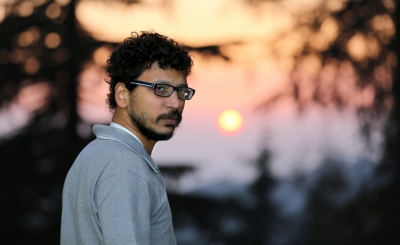Let's stop looking at art in binaries: Filmmaker Umesh Kulkarni
By IANS | Published: November 9, 2022 06:48 AM2022-11-09T06:48:05+5:302022-11-09T07:20:06+5:30
New Delhi, Nov 9 During a night patrol with the cops in Nagpur, he was told about a ...

Let's stop looking at art in binaries: Filmmaker Umesh Kulkarni
New Delhi, Nov 9 During a night patrol with the cops in Nagpur, he was told about a person they recently arrested. Someone who had bought a new knife. To 'test' that it worked fine, he stabbed a stranger. Not really satisfied with its performance, he stabbed another one.
National Award-winning filmmaker Umesh Kulkarni, whose docu-series 'Murder in a Courtroom', being streamed on Netflix as part of 'Indian Predator' recalls the incident and admits that scary is the violence a man on the street is capable of.
"The fact that one does not know what the seemingly harmless stranger walking towards you in a crowd is capable of can be really disturbing," this writer and director of the docu-series tells .
Kulkarni, who attended the recently concluded Dharamshala International Film Festival, back in its physical avatar after two years, says that for a long time he had been wanting to work on the Akku Yadav case. In 2004, a group of around 200 women hailing from Nagpur's Kasturba Nagar, the place which Yadav had terrorised for many years, stormed into the public courtroom and lynched him to death.
The director, who researched for six months before starting the project recalls that for many years he had wanted to explore this incident.
"Finally, I decided to take the plunge and went to Nagpur. We met a lot of women from Kasturba Nagar. Of course, it was difficult to approach them, but the real challenge was in making them trust us. We were accompanied by an excellent research team from 'Vice' and shot multiple interviews. There were so many layers to what had happened on that day in 2004."
There is violence in the house, and on the streets the director says he wanted to unearth what is life like in a fringed society.
"So many people exist in one person. Who are we really? When it comes to the system, there are so many loopholes we are still following so many laws and regulations drafted by the British for us. Is it not absurd?"
Talking about his first outing with OTT, this alumnus of the Film and Television Institute of India, Pune, who has made critically acclaimed films in Marathi like 'Valu'
Disclaimer: This post has been auto-published from an agency feed without any modifications to the text and has not been reviewed by an editor
Open in app